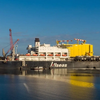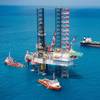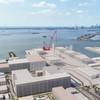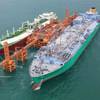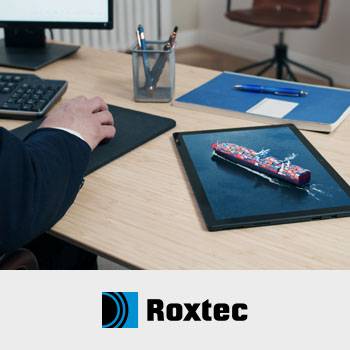Splash & Grab – Oil Theft Blights Gulf of Guinea
Dryad Maritime, the UK-based specialist in maritime intelligence, has completed an analysis of a specific type of maritime crime that poses a risk to shipping in the Gulf of Guinea, West Africa.
The hijack of vessels for the theft of refined fuel cargoes, termed Extended Duration Robbery (EDR) by Dryad, has recently attracted media attention following an extension of the threat to the waters of Cote D’Ivoire.
According to Dryad, Nigerian criminal networks lie at the heart of this relatively sophisticated, violent crime which can see vessels under pirate control for up to seven days. Black market demand sustains the illegal market in stolen cargoes, whilst organised crime and corruption ensure its continuation in the face of regional attempt to deal with the symptons and tackle the causes.
Dryad data shows that the threat from EDR, in its current form, first emerged in August 2009 with an attack on the MT Trine Theresa in Nigerian waters, which saw the crew held hostage whilst the assailants transferred part of the oil cargo into a waiting vessel.
A subsequent attack on the MT Valle Di Cordoba in December 2010, again in Nigerian waters, was followed by an unprecedented number of attacks against vessels anchored off the coast of Benin. EDR attacks in 2012 have been largely confined to Togolese territorial waters, except the boarding and seizure of the MT Orfeas off the Ivory Coast on October 5th. Analysis of post-incident data has enabled Dryad to build up a clear picture of the Modus Operandi of the pirates; “A targeted tanker is boarded by armed assailants, most commonly at night, who proceed immediately to the bridge to gain control of the vessel,” explains Ian Millen, Director of Intelligence at Dryad Maritime. “The crew is then taken hostage, with the captain and engineering staff kept at their posts under guard, and the vessel is taken to a specific destination where transfer of the cargo to another ship takes place. These attacks are increasingly costly and represent a terrifying situation for the crews of captured ships.”
Dryad’s analysis shows that many pirates appear to have a working knowledge of product tankers and are able to operate the hose system used to transfer fuel from one craft to another. The most common cargo to be stolen is fuel oil, although incidents of armed theft against other types of vessels, including bulk carriers, have been reported, whilst opportunist crimes such as kidnap for ransom are also prevalent, adding to the ambient range of threats present in the region.
However, despite the clear and growing threat from EDR and recognition of the threat it poses (the UN Security Council held an open debate on the subject in October 2011) not enough is being done to combat the problem, making the Gulf of Guinea an increasingly hostile area for all mariners.
Even with the limited presence of the French and US navies in the area, and the ongoing efforts of regional navies to target pirates, the naval deterrent across the Gulf of Guinea is still not sufficient to combat the criminal syndicates involved in fuel cargo theft effectively. Dryad’s experts predict that, in the short term at least, attacks against tankers will continue across the area, whilst the increasing sophistication and expertise of the pirates is also allowing them to target shipping far from their base, with the potential for the EDR threat to spread to the territorial waters of Ghana, Cameroon and elsewhere in West Africa.
The danger to shipping is leading to an increased demand for Dryad’s services as a source of maritime intelligence. The company’s risk assessments and vessel safety monitoring services are increasingly in demand, with Dryad increasing its number of analysts and exploring new tools and techniques to meet the increased volumes and deal with the complexities of evolving criminal capabilities. These measures, combined with privileged sources in the region, have enabled Dryad to become a market-leading source of commercially-available maritime intelligence. “We are doing all we can to combat the threat to shipping in the Gulf of Guinea. Our knowledge of the area and the ambient threats allows us to give our clients the best possible advice on how to mitigate the threats and avoid danger, whilst our analysts maintain a daily watch on suspect vessels and vessels of interest. Taken together, we hope that we are making a contribution to the overall safety of ships’ crews, vessels and their cargoes transiting through and operating in these dangerous waters,” added Ian Millen.



